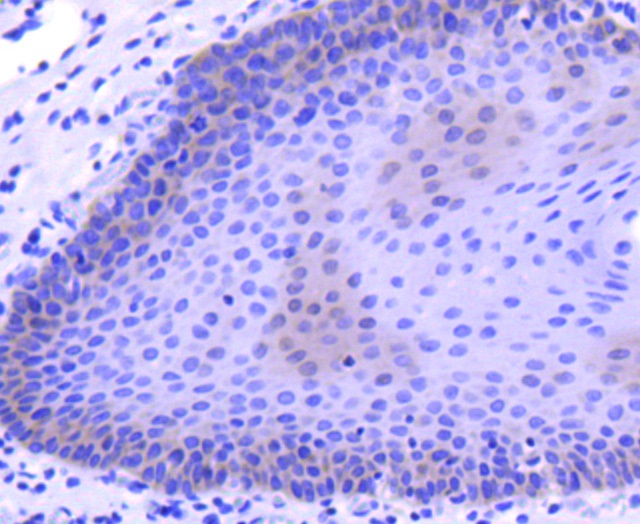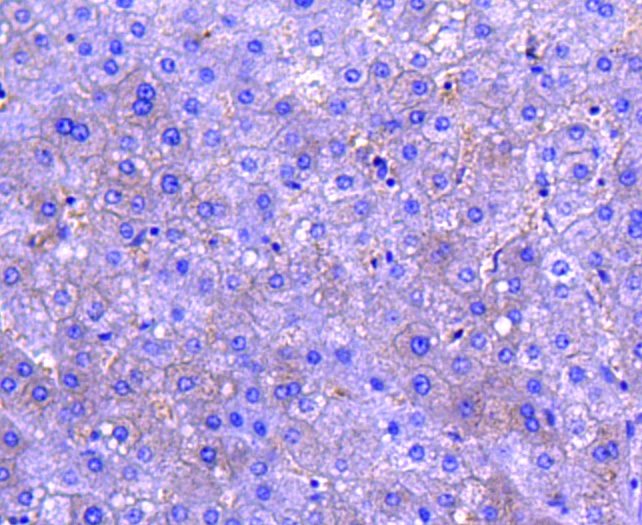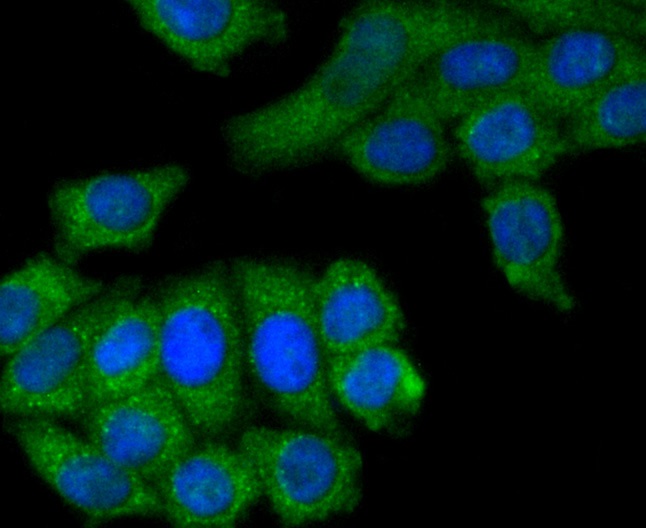The macrophage colony-stimulating factor (M-CSF), also designated CSF-1, was originally discovered in serum, urine and other biological fluids as a factor that can stimulate the formation of macrophage colonies from bone marrow hematopoietic progenitor cells. M-CSF is a homodimeric cytokine that is produced by fibroblasts, epithelial cells, bone marrow stromal cells, osteoblasts, keratinocytes, macrophages, T cells and B cells. M-CSF is a glycoprotein required for the proliferation and differentiation of mononuclear phagocytes, including osteoclasts. M-CSF has also been identified as an important mediator of the inflammatory response and can regulate the release of proinflammatory cytokines from macrophages. M-CSF exerts its pleiotropic effects by binding to a single type of high affinity cell surface receptor that is encoded by the c-Fms proto-oncogene.






